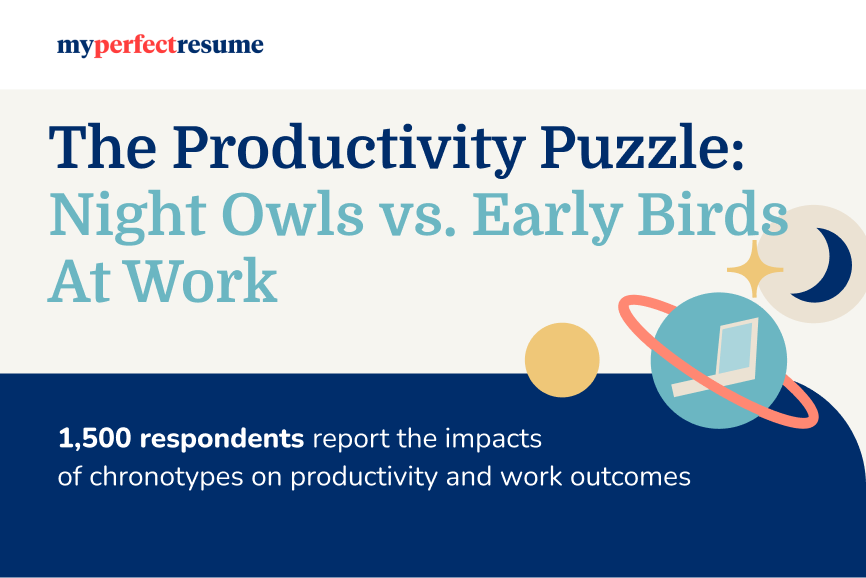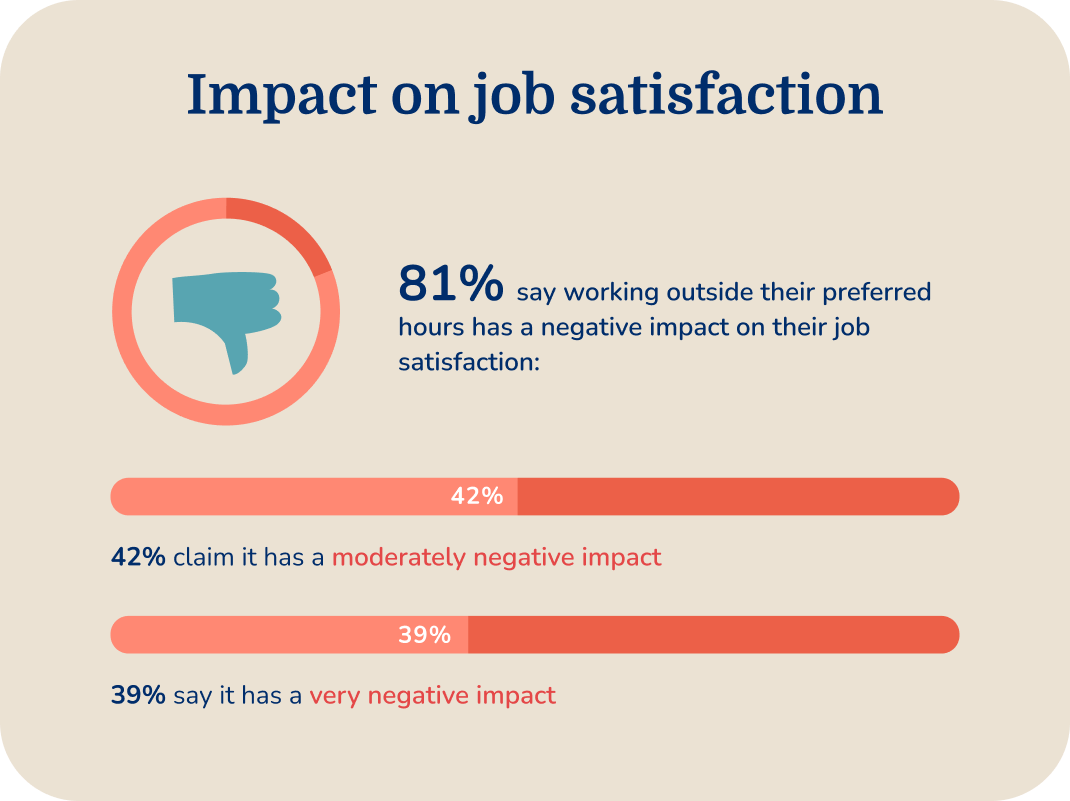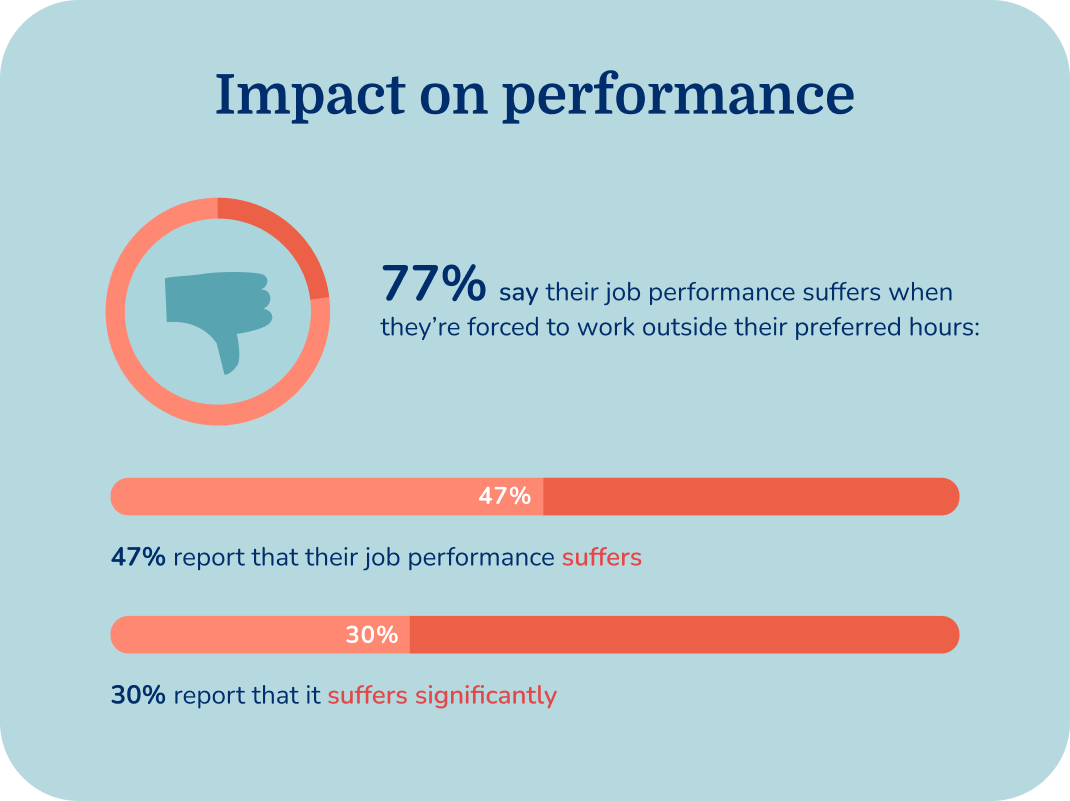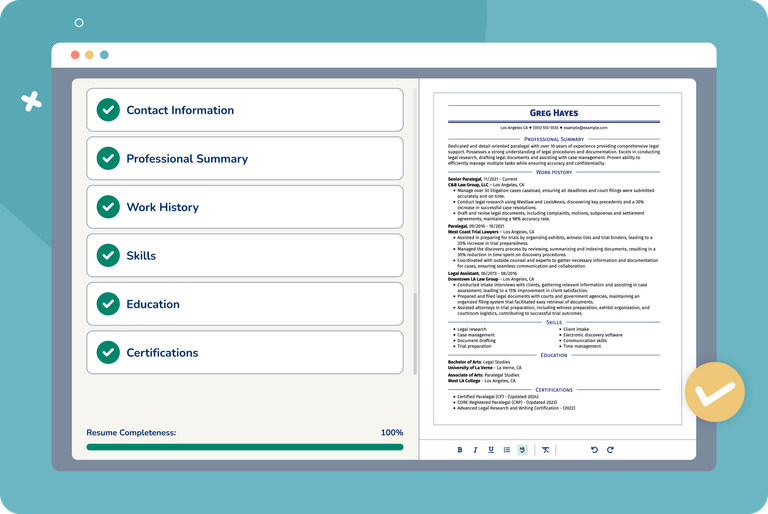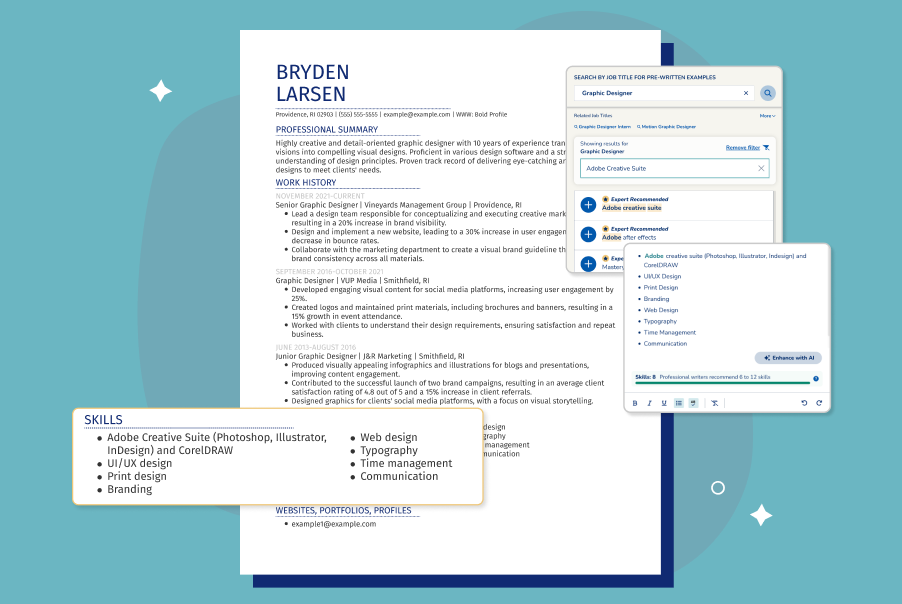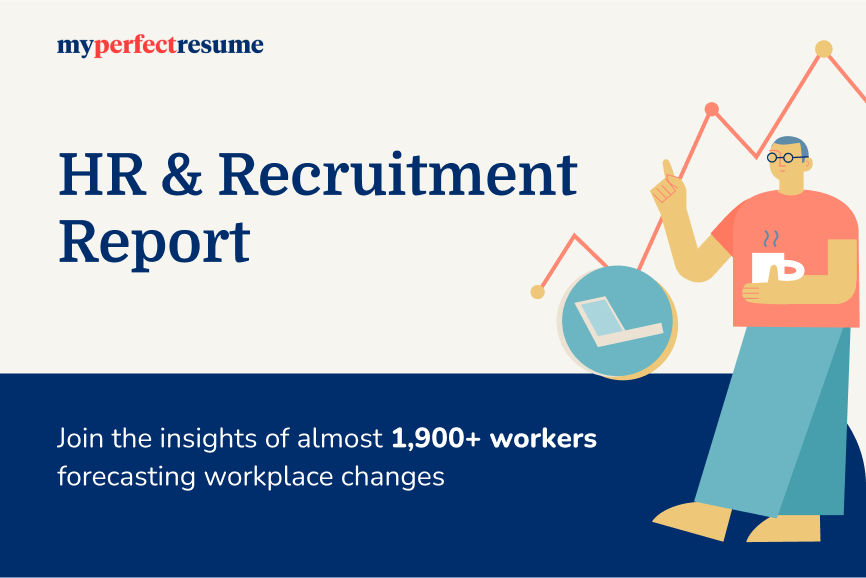Our customers have been hired at: *Foot Note
In the fast-paced world of modern work, flexibility is the new mantra reshaping how we approach our careers. No longer confined by tradition, those who embrace flexibility forge their paths toward success, finding fulfillment, and achieving unparalleled productivity, job satisfaction, and overall well-being.
But what does it look like in reality? Do people work according to their preferences? Or do they struggle to reconcile work with lifestyle?
On July 16, 2023, MyPerfectResume surveyed 1,500 U.S.-based workers to examine people’s preferred working hours and discover the influence of flexible schedules on productivity, job satisfaction and well-being.
Our study proved that 94% currently work outside their preferred hours, hurting productivity, job satisfaction, and workers’ health.
And that’s just the tip of the iceberg. Our full findings are below!
Table of Contents
Get started with MyPerfectResume today!
- Build a resume on any device
- Pick an ATS-friendly template
- Tailor with AI copy suggestions
The importance of working according to preferred hours
In the quest for productivity and job satisfaction, aligning work hours with our natural preferences is often overlooked. Imagine a world where you can tap into your peak energy and focus levels, unleashing your full potential. Do you prefer to get up at dawn to face the tasks that await you? Go ahead. Do you feel best working in the evening hours? Suit yourself. And that kind of flexibility is exactly what employees want.
For 93% of respondents, working according to their preferred hours is essential. Breaking this down, we find that:
- 7% consider it extremely important because it significantly impacts their performance.
- 24% consider it important, but they can still manage if they have to work outside their preferred hours.
- 61% consider it moderately important, and they can adapt to cope with various work schedules.
And given the fact that the standard working format is still 9am-5pm, it’s worth noting that 45% have preferred working hours that are outside the traditional 9am-5pm workday, including:
- Starting early in the morning, ending early afternoon – 24%
- Starting later in the morning, ending later in the evening – 17%
- Working in the morning, taking a break, and finishing in the evening – 4%
The remaining 55% say standard working hours (9am-5pm) suit them best.
But remember, 94% currently work outside their preferred work hours. And this comes with negative consequences.
- 42% report that working outside preferred hours negatively impacts their job satisfaction.
- 40% report it has a very negative impact on their job satisfaction.
- 12% also work outside preferred hours but say it doesn’t impact their job satisfaction.
That’s a poor result for workers and employers alike. When employees are in sync with their natural circadian rhythms, they are more likely to experience increased focus, energy, and creativity, resulting in higher-quality work output. Additionally, flexible working hours can foster a positive work culture and improve employee morale. Workers who control their schedules tend to feel more valued and trusted by their employers, leading to higher job satisfaction and retention.
And without flexibility, it’s not just job satisfaction that suffers.
The Business Costs of Working Outside Preferred Hours
In the bustling business world, time is money and every hour counts. But what happens when employees find themselves working outside their preferred hours?
- 81% say working outside preferred hours harms their job satisfaction:
- 42% claim it has a moderately negative impact on their job satisfaction
- 39% say it has a significantly negative effect on their job satisfaction.
- 77% say their job performance suffers when they’re forced to work outside their preferred hours:
- 47% report that their job performance suffers
- 30% report that it suffers significantly
- 65% say working outside preferred hours damages their productivity:
- 42% report that their productivity is lower
- 23% say their productivity is much lower
Reduced job performance and productivity among employees can have significant consequences for employers. It can lead to decreased efficiency, lower quality of work, missed opportunities for growth, increased costs, employee disengagement, and even a company’s damaged reputation.
But the solution is simple. Forward-thinking businesses recognize the importance of offering flexible work arrangements that cater to their employees’ individual needs and preferences. By allowing workers to align their work hours with their natural rhythms and personal lives, businesses can boost employee satisfaction, productivity, and overall well-being, ultimately leading to a thriving organization.
The Health Costs of Working Outside Preferred Hours
Business costs are one of the pillars of problems originating from the lack of flexibility in working hours. The other one is the adverse effects affecting employees as individuals. In the relentless pursuit of productivity and success, the toll on our health can often go unnoticed. But what happens when work hours increase and demands push us beyond our preferred hours, disrupting our natural sleep-wake cycles and overall well-being? The health costs of working outside preferred hours can be more significant than we imagine, impacting physical and mental health in ways that demand our attention.
83% experience health consequences from working outside their preferred hours, citing:
- Mood swings or irritability – 38%
- Physical health issues (e.g., headaches) – 37%
- Increased fatigue or tiredness – 33%
- Strained personal relationships or social life – 32%
- Difficulty sleeping or disrupted sleep patterns – 31%
In this survey question, respondents were free to select multiple syndromes they experienced when unable to work during their preferred hours.
Only 17% don’t experience any specific consequences.
Navigating the challenges of working outside preferred hours requires ingenuity and resilience. As the demands of modern work challenge the traditional 9 to 5, finding effective coping strategies becomes crucial for maintaining productivity and well-being. Respondents of MyPerfectResume’s research have also spoken out on the subject, outlining the techniques they use to manage work outside their preferred hours.
- Taking short naps or breaks during work hours – 45%
- Adjusting my sleep schedule on non-working days – 44%
- Engaging in stress management techniques (e.g., exercise, meditation) – 43%
- Consuming caffeine or energy drinks – 42%
- Seeking flexibility in my work schedule whenever possible – 39%
Additionally, 18% haven’t found effective coping strategies yet.
In conclusion, is it worth offering workers flexibility regarding working hours? The answer is a resounding “yes.” The advantages of flexibility extend far beyond convenience. By nurturing a culture of trust and ownership through empowering our workforce with flexible work options, we sow the seeds of elevated employee morale, heightened engagement, and enhanced retention. This approach improves productivity and performance and attracts diverse talent. Embracing flexibility enables seamless operation across time zones, amplifying our overall competitiveness and propelling us towards resounding success in an ever-evolving world of work.
About us
MyPerfectResume, we stay ahead of the curve with the latest workplace trends and career advice. Our extensive collection of resume examples (written by certified professional resume writers) and professional resume templates empower you to adapt to these trends and showcase your skills effectively. Explore our resources and our user-friendly online resume builder to create a standout resume that aligns with the evolving job market, helping you stay competitive and achieve your career goals.
Our customers have been hired at:*Foot Note


